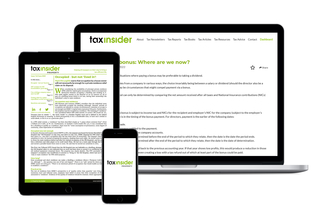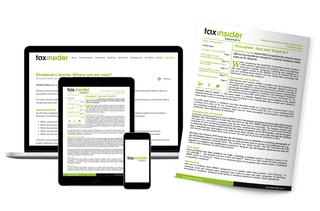New articles published
in November 2025
-
Selling Your Home? Don’t Assume It’s Tax-Free
Most individuals who dispose of their dwelling-house assume that any profit on disposal will automatically be tax-free due to capital gains tax (CGT) principal private residence (PPR) relief.
Mark McLaughlin warns that claims for capital gains tax relief on the sale of a dwelling-house may be open to challenge by HM Revenue and Customs in some cases.
-
When Property Portfolio Incorporation Makes Financial Sense
Property portfolio incorporation is a hot topic currently, with various tax incentives to hold property within a corporate structure. However, transferring properties to a company presents numerous tax challenges, in particular capital gains tax (CGT), and stamp duty land tax (SDLT) (or its equivalents in Scotland and Wales). There are also commercial hurdles, such as novating mortgages and tenancies to a new legal entity.
The decision requires careful evaluation of individual circumstances, financing arrangements, and long-term cash extraction and wealth accumulation strategies.
Nick Wright discusses the key factors determining when property portfolio incorporation makes financial sense, from interest relief restrictions to estate planning benefits.
-
Can HMRC Be Trusted to Resolve Its Own Disputes?
HMRC recently published a formal consultation, ‘Improving HMRC’s Approach to Dispute Resolution’, which aims to promote standard routes to resolve any disagreement between HMRC and taxpayer, before a hearing at the tribunal and courts as a costly last resort.
This article briefly considers those alternatives and how independent they are of HMRC’s influence.
Lee Sharpe asks whether HMRC can be trusted to act as a judge in its own cases, and considers the options in enquiry disputes.
-
Tax Relief for Landlords Forced to Evict Tenants
Over the last few years, the property climate has become increasing hostile towards buy-to-let landlords. Hard on the heels of a raft of unfavourable tax changes, the Renters’ Rights Bill will give renters greater rights (and landlords fewer rights) once it becomes law.
Sarah Bradford looks at when landlords can secure tax relief should they find themselves in the unfortunate position of having to evict tenants.
-
Q&As with Arthur Weller
Some of our most popular articles
-
Joint property letting vs partnerships
Property partnerships seem popular these days – typically, as a stepping-stone to greater things. Regular readers will know that I have long criticised HMRC’s published position on whether a property partnership exists, as distinct from simply co-owned property. My argument is that HMRC has drawn up its guidance to set an unreasonably high threshold to ‘make the grade’ as a partnership.
Lee Sharpe looks at whether a joint property letting activity amounts to a partnership, and why it is relevant to landlords.
-
Main residence relief and multiple residences
Most people do not expect to have to pay capital gains tax (CGT) when they sell their home. Private residence relief (also known as main residence relief or principal private residence relief) normally applies in full when the property has been the taxpayer’s only or main residence throughout the whole period for which they have owned it.
Sarah Bradford outlines the concept of a ‘main’ residence for capital gains tax purposes.
-
That old boiler: Repairs or improvement?
The government (HMRC) has become increasingly worried about the volume of small and medium-sized enterprise research and development (R&D) tax credit payments where a company claims to have undertaken eligible R&D activity (and it is important to keep in mind that only certain types of R&D may qualify – there are a lot of criteria).
Lee Sharpe looks at tax aspects of modernising property and the risk of disallowance as improvements that constitute capital expenditure, losing income tax relief in the property business.
-
Investing in commercial property: Tax implications
Whether to buy commercial or residential property depends on various factors, not least the more beneficial tax system for commercial lets and whether an individual or a company is purchasing the property. The government wishes to encourage commercial lets and therefore permits a more generous tax regime than residential lettings.
Jennifer Adams considers some important tax benefits of investing in commercial property.
-
Q&As with Arthur Weller
Subscription Benefits
We asked our subscribers what they love about Property Tax Insider.
These are the top 7 reasons that they gave us:
Monthly Newsletter
Property Tax Insider…





